Civility
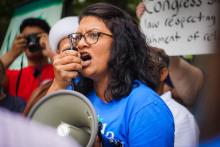
Today, civility policing is just one more layer of rhetorical fog which obscures the truth of our political reality ─ how poverty and cruelty are manufactured and sustained by the policy regime of America’s ruling class. In reality, the Trump tax cut is uncivil, the American support of Saudi Arabia’s war in Yemen is uncivil, the prison-industrial complex is uncivil, ripping families apart at the border is uncivil.

This is not a time for the marketplace of ideas. There are people who believe that immigrant children are criminals. There are people who act as though queer folks are an abomination. There are people who consider every black and brown person to be a threat. These ideas are not worth debating. Logical conversations will not dissuade oppressors. Civility has never transformed the reality of the marginalized and it never will.

Religious leaders must make a direct appeal to every person who plays a role: refuse to obey inhumane orders. When the order is to take children from the arms of their parents or to prevent traumatized children from seeking comfort in each other’s embrace, religious leaders must insist that workers tell their superiors that they will not comply.

Hosea 11:1-11, by the force of prophetic imagination, takes us inside the troubled interiority of God. It does not, however, start there. It begins, rather, with an external encounter between God and God’s people, Israel. The poetry is cast in the imagery of “father-son,” with God cast as father and Israel cast as son. (It could as well have been cast as “mother-daughter,” but that would not happen in that ancient patriarchal society). The imagery of “father-son” was operative in Israelite imagination since God’s first declaration, “Israel is my first born son” (Exodus 4:22). Status as first-born son carries with it immense entitlement, but also inescapable responsibility to uphold the honor of the father and the family.
While Speaker of the House Paul Ryan’s speech to a committee room full of interns on March 23 focused on restoring civility to political discourse, the speech also contained a surprising twist. Ryan, who has publicly endorsed the writings of Ayn Rand, admitted, “I’m certainly not going to stand here and tell you I have always met this standard” of civility.
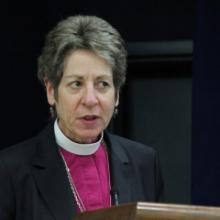
WASHINGTON — Twenty-five top Christian leaders gathered in the U.S. city with perhaps the worst reputation for civil discourse Wednesday and committed themselves to elevating the level of public conversation.
Meeting in a row house three blocks from the U.S. Capitol, the group spanned the Christian spectrum, and included officials from liberal churches and the most conservative of interest groups.
“The ground of our spiritual understanding is in treating other people as the image of God, treating people with respect,” said Episcopal Presiding Bishop Katharine Jefferts Schori.
“Faith leaders have a remarkable opportunity to shift the conversation, but it’s very challenging, particularly in a larger society that wants to understand everything as a battle, as engaging the enemy, rather than with someone who might have something to teach us,” she said.

In the wee hours of Wednesday morning, we learned that President Barack Obama would remain the leader of the free world. But his victory came at a price. He and Governor Mitt Romney now have the honor of participating in the most negative election in United States history.
“The campaign has already set records for nastiness and negativity,” Senator Joseph Lieberman commented to CNN in August. Howard Fineman echoed the sentiments on the Huffington Post, calling it “the nastiest, most abrasive personally accusatory presidential campaign in modern times.”
It’s hard to argue with their assessments, but does anyone care? And if so, what are we going to do about it?
Every campaign has a measure of negativity, but 2012 was exceptional.
Every campaign has a measure of negativity, but 2012 was exceptional. Mudslinging became an art form, and the lack of truth-telling turned “fact-checking” into a cottage industry. At one time in this country, disagreements could be settled by a good old-fashioned duel. (If you don’t believe me, ask Aaron Burr.) But in the media age, guns are no longer necessary. We have commercials.
The campaigns unleashed roughly 1,000,000 television ads during this election, and a record four out of five were negative.
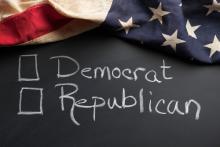
With the Republican and Democratic National Conventions having taken place over the last two weeks, we can officially say that we’re entering the election season (i.e., that time when the general public begins to pay attention).
A couple of friends who pastor churches in non-D.C. parts of the country asked me if we feel the need to address politics at The District Church, being in the very belly of the beast (my words, not theirs). Specifically, they were asking: Given the intense polarization and often-unproductive arguing that we see around us, even in the church, about the need to address how we interact with those who disagree with us.
So far, we haven’t needed to. In our church community, we have Republicans, Democrats, Independents, and yes, even people who don’t care about politics; we have Hill staffers, White House staffers, activists, advocates, lobbyists, policy wonks, and more — and we’ve all come together as the body of Christ, recognizing that our allegiance is first to Jesus before any party or even country.
Even so, every four years (or every two, if you pay attention to mid-terms; or all the time, if you’re even more politically engaged), posts about politics pop up with increasing frequency on social media, eliciting often-furious back-and-forths that usually end up doing nothing more than reminding each side how right they are and how stupid the other side is.
So I figured I’d try to offer a few suggestions on how we can engage with one another on matters of politics in healthy ways.
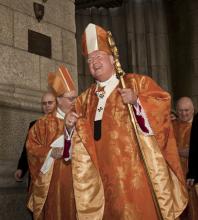
NEW YORK — Cardinal Timothy Dolan, who sparked controversy by agreeing to deliver the closing blessing at the Republican convention in Tampa this week, on Monday drew further attention to his political role by asking both Mitt Romney and Barack Obama to sign a “civility pledge” promoted by a leading conservative Catholic activist.
The archbishop of New York wrote to Romney and Obama, as well as their running mates, Paul Ryan and Joe Biden, asking them to sign the “Civility in America” pledge developed by Carl Anderson, head of the powerful Knights of Columbus and a man with long-standing ties to the Republican Party.

It is difficult to discuss "hard topics" with people with whom I disagree.
When someone supports a political candidate whom I resist, holds to a theological understanding that I find confusing, or when I hear opposing points on climate change, poverty, global economics, human sexuality, etc., it is challenging to listen with a genuinely open ear.
However, what I have found is that, even if I feel passionate about a particular point of view, when I am able to open up and genuinely listen to others, great things take place throughout the exchange. Through honest and open interaction, an increased level of mutual respect and understanding is achieved, we learn to understand why things are perceived the way they are, and the overall strength of the relationship grows.
In our current North American climate of political polarization, religious division, and socio-economic seclusion, it is time to have more dialogue on — among other things — dialogue.
A friend of mine once said, “a true and genuine dialogue only takes place when each person is willing to be ‘converted’ to the other side of the argument.” At first I was skeptical of this remark, as I wondered how I could ever open myself up to being “converted” on certain topics about which I felt strongly. But now I am beginning to see the wisdom in such a statement.
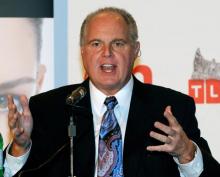
In an apparent bid to add an erudite contribution to our public discourse, Rush Limbaugh called a Georgetown law student a "slut" and a "prostitute" for testifying before Congress in favor of the Obama administration's mandate that employers cover contraception in their health insurance plans.
After a considerable public outcry, a number of sponsors have abandoned Limbaugh, causing him to issue what resembled a public apology. But Limbaugh also heard more than a few "amens" from people who considered difference of opinion a sufficient justification for publicly defaming the young woman.
Maybe I'm expecting way too much from talk radio, but don't we deserve better from our public discourse?
At the heart of this debate over contraception is a conflict between religious rights and social obligation -- one we've had to navigate numerous times in our nation's history.
It's never been easy for us to determine the boundaries between individual right to unencumbered belief and competing responsibility to civic need. But it certainly doesn't help us work through the difficulties when pundits resort to name-calling and complexities are dissolved into bumper-sticker sound bites.
To talk carefully about this tough issue requires that we take seriously the claim from some Catholics that a requirement to finance contraception represents a fundamental violation of convictions about when life begins and what makes sex a moral good. Yet we also need to take just as seriously the moral value that others place on the right of access to basic health services, and the public good that comes from including contraception in our definition of basic health care.

There are a lot of heinously unmerited personal attacks going on in these United States right now, but for some reason I’m most bothered by the ones against Dr. Katharine Hayhoe, a climate scientist and evangelical Christian. As this current Sojourners action alert describes, she’s been targeted by Rush Limbaugh, among others, for her efforts to speak the truth about global warming.
Partly, these attacks get under my skin because I’ve always had a soft spot in my heart for evangelical scientists. My dad is one, and my Intervarsity-linked Bible study in grad school was so full of them that, as often the lone humanities student, I jokingly made up a scientific discipline to fit in (“I’m in immunostatistics — I model atypical populations.”)
But mostly, the attacks on Hayhoe sadden me because she’s so genuine and earnest in her desire not just to convey the evidence for climate change, but also to engage in respectful dialogue.
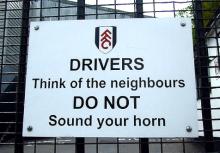
The Great Conversation that we invite our readers to join here at Sojo.net must, by definition, be both civil and respectful. Our comments sections should be a safe harbor, different from the comments sections of any other websites and blogs that deal with the busy intersection of religion, politics and culture.
To that end, during the last few weeks Sojourners staff and management have had a great many discussions about how we might best address the issue of incivility in our comments sections and correct it. We are committed to preserving the comments sections as a vital part of our community and that Great Conversation, but not at the cost of hearts and minds that have been wounded by their experiences here.
We can disagree, and we must when our conscience so demands, but we must do it with kindness, open minds and open hearts.
A California vicar I know likes to describe the life of faith — the Church — as “The Great Conversation.” It is a conversation to which we all (and what part of alldon’t you understand?) are invited. When followers of Christ share their faith with others, they are inviting them to join the sacred conversation.
This is evangelicalism in its truest sense. This is what we are called to do. By the One, by Emmanuel, “God with us.”
My dear friend, (and most recently my boss), Sojourners CEO Jim Wallis, said recently that the 2012 presidential election is expected to be the most mean-spirited and vitriolic we’ve ever seen.
That may be true, but it doesn’t necessarily mean it must be that way.
We can solve that problem one conversation at a time.
Sunday afternoon in Lower Manhattan, I ran into Salman Rushdie, who was walking nonchalantly through Zuccotti Park with his son. The renowned author's presence went largely unnoticed by the thousands of protesters, media and tourists crowding the park observing the Occupation demonstration.
On his way out of the park, Rushdie graciously took a few moments to talk with me about what he'd just witnessed. It was his first visit to the demonstrations and he was clearly moved by what he saw.
Do yourself a favor and watch this. It's 7:15 minutes long but well worth your time.
Such a substantive leadership lesson in itself by Bill Hybels as he explains why Howard Schultz withdrew his commitment as a speaker at the Willow Creek Leadership Summit (held on August 11-12). And furthermore, how he and Willow Creek are responding
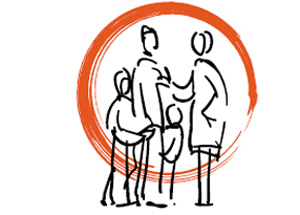 Several weeks ago (right before I left for my sabbatical), I joined with six other pastors from around the country -- in partnership with Sojourners -- to draft an open letter to Congress and President Barack Obama regarding the budget and the proposals to cut certain programs that aid the poor in our country. Our hope was to invite at least 1,000 pastors to join us in signing this document.
Several weeks ago (right before I left for my sabbatical), I joined with six other pastors from around the country -- in partnership with Sojourners -- to draft an open letter to Congress and President Barack Obama regarding the budget and the proposals to cut certain programs that aid the poor in our country. Our hope was to invite at least 1,000 pastors to join us in signing this document.
As of today, we've had nearly 5,000 pastors and Christian leaders from all 50 states join us in signing this open letter, and we hope to keep adding voices and signatures. As a pastor and Christian leader will you add your voice to let our political leaders know that you stand with the poor?
Read the letter below and if you resonate with our message, please sign your name.
Life is hard. It is full of pain, disappointments, and challenges of every kind. When hard times come our way, we often ask, Why me? And the answer comes: Why not you? We sometimes think that God has forsaken us, and sometimes God is silent. It is difficult to remember the Biblical wisdom that explains why believers, children of God, the beloved of God go through difficult times.
